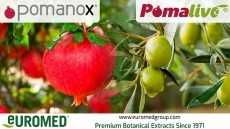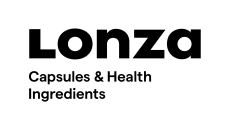Green tea extract's Janus Effect on stomach health: study
the risk of gastric cancer among women by 75 per cent, suggests a
new study from Japan.
However, similar to Janus, the two-faced Roman god, researchers from the National Cancer Center in Tokyo state that increased blood levels of the polyphenol may increase the risk among men. The researchers, led by Shizuka Sasazuki, report their findings in this month's issue of the journal Cancer Epidemiology, Biomarkers & Prevention. The study adds to an ever-growing body of science supporting potential health benefits of green tea and its polyphenols, previously linked to a lower risk of certain cancers, weight loss, heart health, and protection against Alzheimer's. It also highlights the need to consider the sexes separately when undertaking scientific studies in order to identify potentially gender-dependent interactions. Green tea contains between 30 and 40 per cent of water-extractable polyphenols, while black tea (green tea that has been oxidized by fermentation) contains between 3 and 10 per cent. The four primary polyphenols found in fresh tealeaves are epigallocatechin gallate (EGCG), epigallocatechin (EGC), epicatechin gallate (ECG), and epicatechin (EC). The new study, which used a case-control design, matched 494 people with gastric cancer (cases) with 494 healthy people (controls). Blood samples were taken and polyphenol levels measured using high-performance liquid chromatography (HPLC). Sasazuki and co-workers report that blood levels of ECG between 0.32 and 9.2 ng/mL were not associated with any change in gastric cancer risk among women. However, blood levels of 9.3 ng/mL were associated with a 75 per cent reduction in risk in women, compared to women with blood levels below the detectable limit. On the other hand, "for men, a high plasma level of (-)-epigallocatechin was associated with an increased risk of gastric cancer," said the researchers. Stomach cancer is the fourth most frequent cancer in the world, according to the European School of Oncology, and there are 800,000 new cases every year. It is Japan's most common form of cancer. More research is clearly needed to further examine these observations, with mechanistic studies necessary to elucidate the underlying pathways and why ECG appears to exert beneficial effects in women, but may increase risk in men. Previous research has focused mostly on the potential benefits of EGCG. European demand for tea extracts is currently surging, having reached 500 metric tonnes by 2003. This has seen companies such as DSM, with its Teavigo boasting 95 per cent purity of EGCG, and Taiyo International, with its Sunphenon claiming more than 90 per cent purity, position themselves firmly in specific catechin markets. Source: Cancer Epidemiology, Biomarkers & Prevention 1st February 2008, Volume 17, Number 2, Pages 343-351, doi: 10.1158/1055-9965.EPI-07-0428 "Plasma Tea Polyphenols and Gastric Cancer Risk: A Case-Control Study Nested in a Large Population-Based Prospective Study in Japan" Authors: S. Sasazuki, M. Inoue, T. Miura, M. Iwasaki, S. Tsugane for the Japan Public Health Center-based Prospective Study Group










